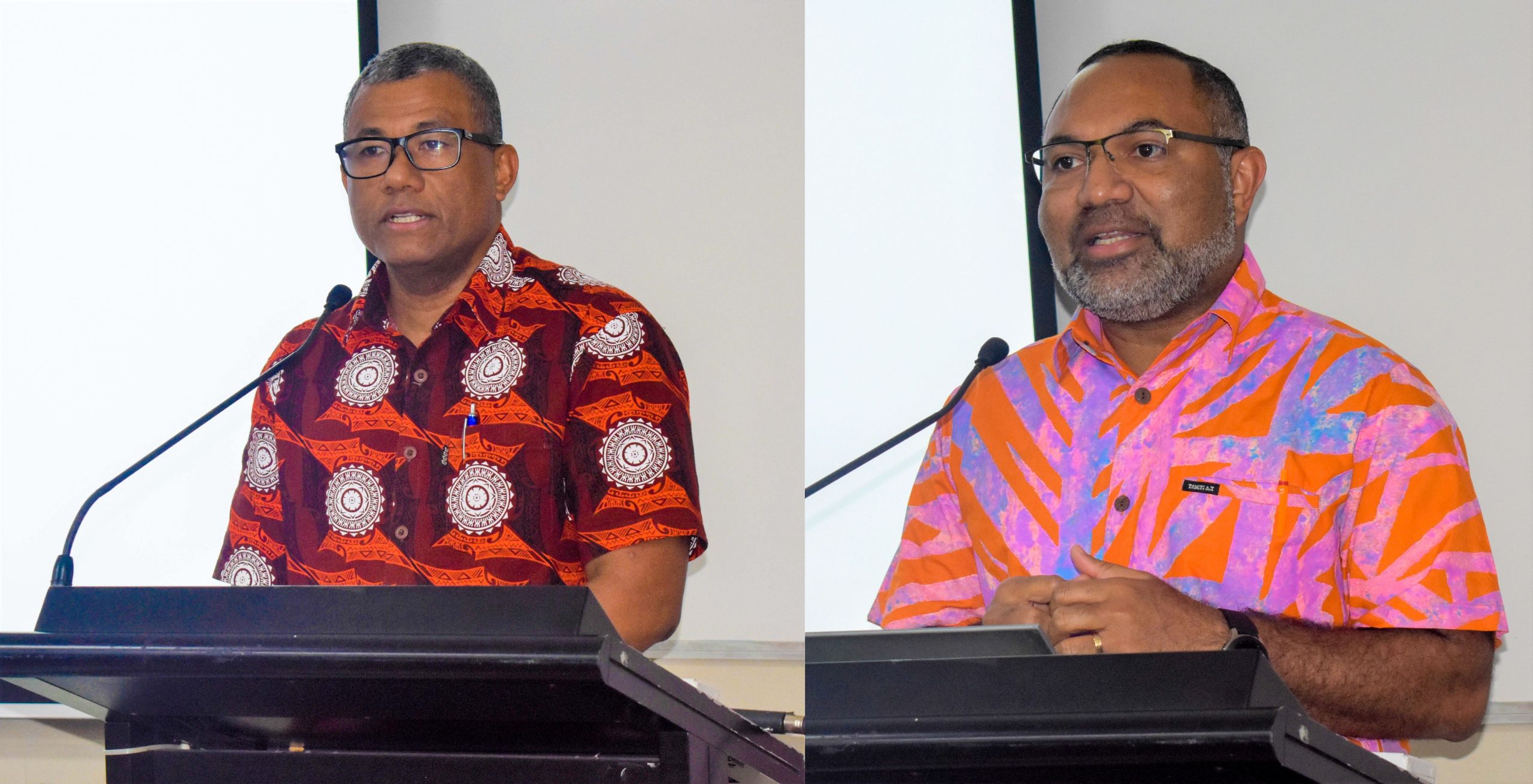It is important to value the significance of bioethics and its application in the medical fields and life in general, says Fiji National University’s (FNU), Acting Vice-Chancellor Dr William May.
Dr May highlighted this while speaking at the inaugural World Bioethics Day event at FNU’s College of Medicine, Nursing and Health Sciences’ (CMNHS) yesterday afternoon.
“Bioethics refers to the ethical implications and applications of the health-related life sciences,” he said.
“There are challenges in the delivery of research, health care, prevention, diagnosis, treatment, care and management of disease, and promotion of health.”
“Professionalism and ethical values have always provided an implicit grounding for medical research practices,” added Dr May.
According to Dr May with the emergence of new biotechnologies and reemergence of infectious diseases, health professionals need to make the right choice when making decisions that affect the health of communities.
“We have been repeatedly reminded to conceptualise ethical issues as a bounded area of interest within these fields and among others,” said the senior academic.
“The field of bioethics is all-encompassing of the facts of life, and its study falls into many knowledge areas within health including environmental, medical, clinical, research, health financing procurement and many others.”
With the theme ‘Benefit and Harm’, Dr May said the event provided a platform for discussions to create awareness and to provide ‘points of view’ based on ethical principle.
“When we link bioethics to health care, we refer to the rights of patients to make informed decisions over their own lives. In that scenario, we will also anticipate risks that must be managed and minimized,” stated the Acting V-C.
“Bioethics is also critical when we consider the rights of vulnerable people such as people living with some form of disability, that they be given special consideration regarding all aspects of their health.”
“When we link bioethics to research, we must ensure that human participation in research studies is voluntary, that we do the least, if no harm at all, observe confidentiality and especially returning the participant to his or her initial state of mental, physical and even spiritual health at the conclusion of those studies.”
Acting Dean CMNHS, Dr Donald Wilson added that regardless of one’s age, economic, ethnic or religious background, everyone had varying degrees of being able to differentiate between right and wrong.
“We know that as people who provide care, we always say ‘First, do no harm’,” Dr Wilson said.
“The fundamental principle in any kind of health research is that any research is unethical if the harm outweighs the benefit.”
“Ethics, in general, is what is morally right and wrong so today, we reflect on how we teach ethics in our College schools and in research.”
The College’s five Schools (Medical Sciences, Health Sciences, Nursing, Dentistry and Oral Health, Public Health and Primary Care) also presented on how bioethics was embedded into its various programmes.
